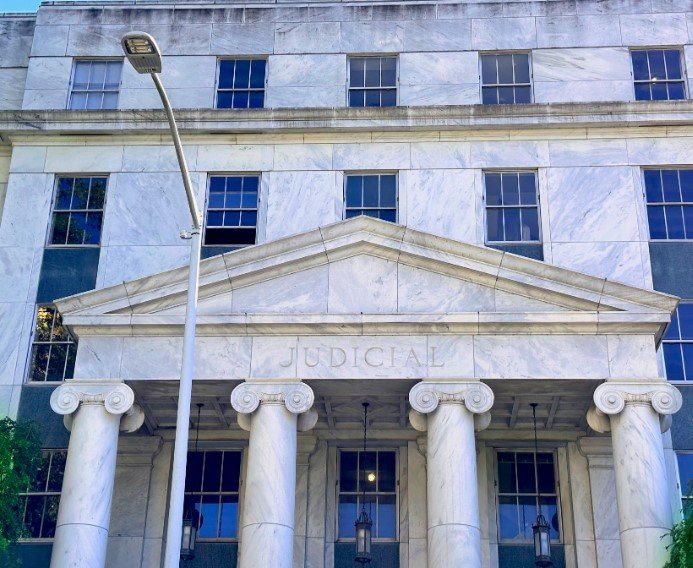Georgia’s Supreme Court decided not to extend the deadline for counting absentee ballots in Cobb County, a move that hands a key legal victory to the Republican National Committee and former President Donald Trump, who is once again vying for the presidency. By a court order issued Monday, only absentee ballots received by 7 p.m. on Election Day in Cobb County, which is located in suburban Atlanta, will be counted.
Why Cobb County’s Ballots Became a Flashpoint
The dispute over the deadline emerged last week when civil rights groups took legal action, arguing that Cobb County violated state law by sending out thousands of absentee ballots too close to Election Day. Approximately 3,000 ballots were reportedly affected, leading some groups to push for a deadline extension to ensure all votes could be counted. County officials, citing an influx of absentee ballot requests, claimed they were overwhelmed by the surge and struggled to send ballots in a timely manner.
However, Georgia’s top court overruled an initial judge’s ruling that extended the deadline, insisting that the law clearly states only ballots received by the cutoff time on Election Day can be counted. This decision comes as a notable win for the Trump campaign and the RNC, who opposed the extension, framing it as a potential violation of state election laws.

Civil Rights Groups’ Push for Extended Voting Access
Organizations advocating for the deadline extension say that denying these voters extra time could lead to disenfranchisement, particularly in Cobb County, a diverse and densely populated area. Civil rights advocates argue that the county’s failure to send ballots promptly was an issue of administration, not voter readiness, and that residents who requested absentee ballots with enough time to vote shouldn’t be penalized.
In response to the court’s ruling, these organizations voiced disappointment, calling the decision a step backward for voter rights. As a county that voted overwhelmingly for President Joe Biden in 2020, many civil rights groups worry that the decision will limit the voices of those voters most likely to support the Democratic Party.
“Election rules should facilitate access, not create barriers,” said one advocate involved in the case, reflecting the sentiment shared by many voting rights groups across the nation.
Why Cobb County Matters in the 2024 Election
For Trump and the Republican National Committee, Cobb County represents more than just another county; it’s a symbol of a demographic shift that’s reshaping Georgia’s political landscape. While it was once reliably Republican, Cobb County leaned heavily toward Biden in the last presidential election, with Biden winning by a 14-point margin in 2020.
The RNC and Trump’s legal team have made it clear they see ballot deadlines as integral to ensuring “election integrity,” a term that has become a cornerstone of Trump’s platform since his 2020 loss. On social media, RNC Chair Michael Whatley emphasized that “Election Day is Election Day,” reinforcing the party’s stance that deadlines must be strictly adhered to for the sake of a fair process.
Georgia itself is one of several key battleground states expected to play a decisive role in the 2024 presidential race. Polls in Georgia show a tight race between Trump and his Democratic opponent, Vice President Kamala Harris, meaning any adjustments to ballot deadlines or counting methods could sway the outcome.
What Happens to Late Absentee Ballots?
To address concerns raised by civil rights groups and voters, the court has ordered that absentee ballots received after Election Day should be separated from those received on time. This decision could help facilitate future legal action or recounts, should the final vote count fall within a narrow margin.
Georgia law does allow voters to cast their ballots in person if they are unable to return their absentee ballots by mail in time. In Cobb County, election officials confirmed that voters who did not receive an absentee ballot or who are worried about the ballot’s arrival can still vote in person on Election Day.
While the ruling may disappoint those who were banking on a deadline extension, this directive from the court allows voters to take action. Ultimately, those 3,000 voters affected by delays in Cobb County still have options, even if they cannot rely on mailing their ballots in at this point.
What the Decision Means for Voter Access Nationwide
The Georgia Supreme Court’s ruling is already sparking debate beyond the state, adding fuel to discussions about voting access, particularly in swing states where minor policy changes can alter election outcomes. Across the United States, election laws vary widely, especially concerning absentee ballot deadlines and counting procedures. Some states allow ballots postmarked by Election Day to count, while others mandate receipt by Election Day’s end.
With election law issues becoming increasingly politicized, the Cobb County case may set a precedent that other state courts follow, particularly in swing states with contentious voter demographics. Voting rights groups see this as part of a broader trend of restricting absentee ballot options, while advocates on the opposite side argue it’s essential for ensuring votes are counted accurately and punctually.
Georgia, given its narrow margins in previous elections, will likely continue to be a state to watch in the ongoing battle over voter access and ballot integrity. For now, Cobb County voters affected by the delays must adjust to the ruling, casting ballots in person if they still wish to have their voices heard in this critical election.
